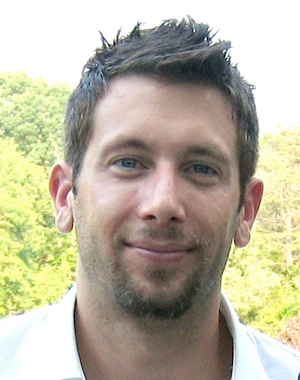Home > Press > Sydney physicist achieves measurement milestone
 |
| Dr Michael Biercuk |
Abstract:
Research into the most sensitive measurement of force yet recorded has earned University of Sydney physicist Dr Michael Biercuk, of the School of Physics' Quantum Science Group, the National Measurement Institute Prize for excellence in measurement techniques by a scientist under 35.
Sydney physicist achieves measurement milestone
Sydney, Australia | Posted on May 24th, 2011In collaboration with the Ion Storage Group at the US National Institute of Standards and Technology, Dr Biercuk demonstrated it is possible to use trapped atomic ions as extremely sensitive detectors of applied forces and electromagnetic fields. In so doing, the researchers were able to measure forces with extraordinary sensitivity - down to the yoctonewton (yN) level.
The yoctonewton represents one septillionth of a newton, the unit of force named after physicist Sir Isaac Newton.
"This award recognises Dr Biercuk's contribution to research in the most sensitive measurement of force to date - the yoctonewton," said Innovation Minister Senator Kim Carr, who announced the award on Friday.
"This is an incredibly small force - about a million million billion times smaller than the force exerted by a feather lying on a table. And the measurement is a thousand times more sensitive than anything previously possible," he said.
The discovery provides an opportunity to address new challenges in materials science, nanotechnology and industrial sensing. For example, forces at the yoctoscale correspond to the weight of tiny nanoparticles consisting of just a few dozen atoms, or the effects of tiny electric fields on charges in nanoscale materials.
"By characterising the detector's sensitivity, a term with technical importance, rather than just the minimum force we could detect, we touched on an important area for industrial applications - the speed with which a measurement can be performed," said Dr Biercuk.
"Even if it isn't necessary to measure force at such a tiny level as the yoctoscale, our technique could simply be used to speed up the detection of larger forces. Compared to previous record-setting techniques, our measurement scheme would allow measurement of the same force about one million times faster.
"This ability to measure tiny forces at a dramatically enhanced measurement speed is a key demonstration that may spark new interest in ion-based sensors for applications such as the characterisation of nanomaterials and standoff detection for the mining and defence industries."
To detect the force, Dr Biercuk and colleagues used a device consisting of about 60 beryllium ions confined in a Penning Trap, which stores charged particles using electric and magnetic fields. Any movement caused by an applied force was measured with a laser. The resulting measurement of forces with sensitivity at the level of 390 yoctonewtons with just one second of measurement eclipsed the previous record by three orders of magnitude.
"I am extremely grateful and humbled that this work was deemed significant enough to warrant this distinction, and I'm very pleased that the exciting new field of quantum science is having impacts on a variety of disciplines, including measurement science," said Dr Biercuk.
"I'm looking forward to new capabilities in measurement science emerging from collaborations abroad and with my colleagues in the School of Physics and the Centre for Engineered Quantum Systems."
####
For more information, please click here
Contacts:
Katie Szittner
61 2 9351 2261
Copyright © University of Sydney
If you have a comment, please Contact us.Issuers of news releases, not 7th Wave, Inc. or Nanotechnology Now, are solely responsible for the accuracy of the content.
| Related News Press |
Research partnerships
![]() Discovery points path to flash-like memory for storing qubits: Rice find could hasten development of nonvolatile quantum memory April 5th, 2024
Discovery points path to flash-like memory for storing qubits: Rice find could hasten development of nonvolatile quantum memory April 5th, 2024
![]() Researchersí approach may protect quantum computers from attacks March 8th, 2024
Researchersí approach may protect quantum computers from attacks March 8th, 2024
![]() 'Sudden death' of quantum fluctuations defies current theories of superconductivity: Study challenges the conventional wisdom of superconducting quantum transitions January 12th, 2024
'Sudden death' of quantum fluctuations defies current theories of superconductivity: Study challenges the conventional wisdom of superconducting quantum transitions January 12th, 2024
Quantum nanoscience
![]() Simulating magnetization in a Heisenberg quantum spin chain April 5th, 2024
Simulating magnetization in a Heisenberg quantum spin chain April 5th, 2024
![]() Optically trapped quantum droplets of light can bind together to form macroscopic complexes March 8th, 2024
Optically trapped quantum droplets of light can bind together to form macroscopic complexes March 8th, 2024
![]() Bridging light and electrons January 12th, 2024
Bridging light and electrons January 12th, 2024
![]() 'Sudden death' of quantum fluctuations defies current theories of superconductivity: Study challenges the conventional wisdom of superconducting quantum transitions January 12th, 2024
'Sudden death' of quantum fluctuations defies current theories of superconductivity: Study challenges the conventional wisdom of superconducting quantum transitions January 12th, 2024
|
|
||
|
|
||
| The latest news from around the world, FREE | ||
|
|
||
|
|
||
| Premium Products | ||
|
|
||
|
Only the news you want to read!
Learn More |
||
|
|
||
|
Full-service, expert consulting
Learn More |
||
|
|
||








